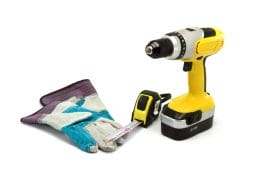Tangible Asset and Repair Regulations Update
Share post:
 As you may recall from a previous article, the IRS issued final regulations that provide guidance on whether businesses can deduct or must capitalize amounts that they pay to acquire, produce or improve tangible property. The new Tangible Asset and Repair Regulations (TARS) went in to effect for taxable years beginning on or after January 1, 2014 and will impact nearly every 2014 tax return that includes a trade, business or rental. Recently, the IRS eased these regulations for small businesses; however, there is a potential cost associated to that relief.
As you may recall from a previous article, the IRS issued final regulations that provide guidance on whether businesses can deduct or must capitalize amounts that they pay to acquire, produce or improve tangible property. The new Tangible Asset and Repair Regulations (TARS) went in to effect for taxable years beginning on or after January 1, 2014 and will impact nearly every 2014 tax return that includes a trade, business or rental. Recently, the IRS eased these regulations for small businesses; however, there is a potential cost associated to that relief.
Some of the regulations will provide opportunities for current tax savings, while others will defer the tax benefits. For an overview of the final repair regulations, click here to read our article published in October 2013.
Relief for Small Businesses
On February 13, 2015, the IRS released a simplified procedure for small business taxpayers. The IRS defines a small business taxpayer as, “a business with total assets of less than $10 million or average annual gross receipts of $10 million or less.” With this recent change, qualified small businesses will be able to change the method of accounting on a prospective basis for the taxable year beginning on or after January 1, 2014. Additionally, if a small business chooses the simplified procedure for 2014, they will not have to file a Form 3115; however, filing it can provide benefits such as limited audit protection and special write-offs only available in 2014.
It is important to note that even if a small business chooses to use the simplified procedure, compliance with TARS is still required.
Additional Information and Forms Will Be Required
As a result of the new regulations, taxpayers should expect their advisor to request additional information to prepare their 2014 tax return. Some of these items will include your capitalization policy and the ledger detail for years 2011-2014 for materials and supplies, repairs and maintenance, and fixed asset accounts. There will also be additional forms and elections required for ongoing compliance.
Additionally, any change to comply with the new regulations will be a considered a change in accounting method, which an accounting adjustment and consent form may be required. The IRS has issued procedures under which taxpayers can obtain automatic consent to specific accounting method changes and is expecting these forms be filed by taxpayers for taxable years beginning in 2014.
Additional Analysis May Be Required
If you own real property used in a trade or business (including rental property) and your average gross receipts are over $10,000,000 or your cost basis for any property is greater than $1,000,000, additional analysis will be required to come into compliance with the new regulations.
While the changes provide some relief to small business taxpayers, the regulations are still quite complex and will require additional time and consideration this tax season.
BPW is committed to helping you find a solution that best meets your needs and goals. Should you have any questions about the new regulations or how to comply with them, please feel to contact me at (805) 963-7811 or bforeman@bpw.com.
